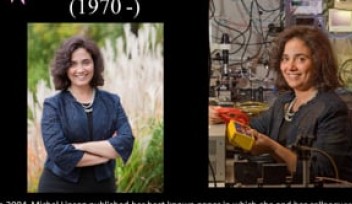"Is There a Perfect Cipher?" by Prof. Artur Ekert
Abstract:
Human desire to communicate secretly is at least as old as writing itself and goes back to the beginnings of our civilisation. The struggle between code-makers and code-breakers had several times affected the course of history and the formidable mathematical task of breaking increasingly more complicated ciphers contributed to the development of computer science. I will describe briefly how people protected information in the past and how it is done today. Physicists play increasingly more important role in this field because the process of sending and storing of information is always carried out by physical means, for example, by sound, light or radio waves. In particular, eavesdropping can be viewed as a measurement on a physical object, in this case the carrier of the information. What the eavesdropper can measure, and how, depends exclusively on the laws of physics. Using quantum phenomena physicists managed to design and to implement a system which is regarded to be unbreakable. I will outline the basic principles behind quantum cryptography.
Biography:
Artur Ekert is the Professor of Quantum Physics at the Mathematical Institute, University of Oxford, UK. He is also the Director of the Centre for Quantum Technologies and Lee Kong Chian Centennial Professor at the National University of Singapore. He is one of the co-inventors of quantum cryptography, and his current research extends over most aspects of information processing in quantum-mechanical systems. He has worked with and advised several companies and government agencies. He is a recipient of several awards, including the 1995 Maxwell Medal and Prize by the Institute of Physics and the 2007 Royal Society Hughes Medal. In 2016 he was elected a Fellow of the Royal Society. In his non-academic life, he is an avid scuba diver and pilot.
Copyright OIST (Okinawa Institute of Science and Technology Graduate University, 沖縄科学技術大学院大学). Creative Commons Attribution 4.0 International License (CC BY 4.0).














